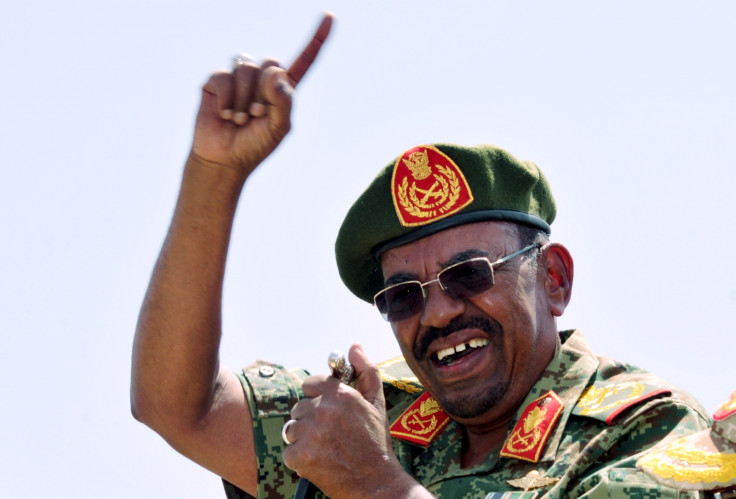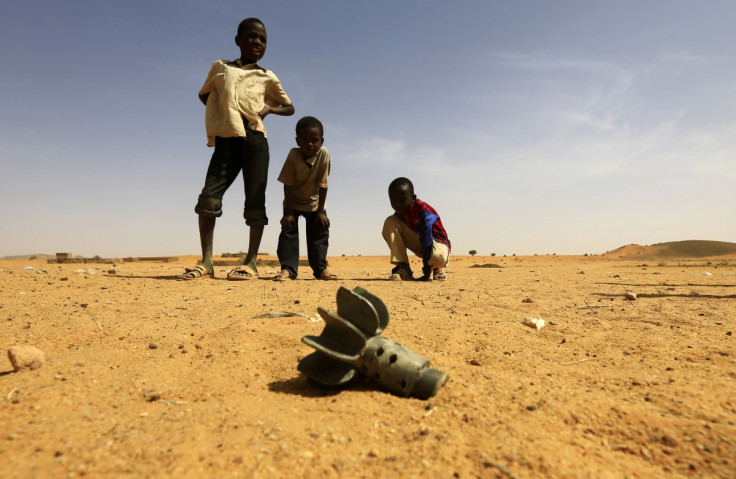Sudan: President Omar al-Bashir reopens borders with South Sudan

For the first time since the Sudans seceded in 2011, Sudan's President Omar Hassan al-Bashir has ordered the opening of his country's border with South Sudan.
Bashir, who became president of Sudan in 1989, is wanted by the International Criminal Court (ICC) on 10 counts including genocide, war crimes and crimes against humanity for his role in the Sudanese army's crackdown in the region of Darfur, western Sudan, in 2003. According to the UN, fighting in the impoverished region has killed 300,000 people and created more than 2 million refugees.
Bashir's move, meanwhile, comes days after reports that South Sudan had ordered its troops to withdraw a short way from the border with South Sudan, which gained independence after a 2005 peace agreement that ended the 22-year civil war. Although the border has not been officially open, refugees have crossed in both directions.
According to state news agency Suna, Bashir demanded the Sudanese authorities to "take all measures" for the reopening of the borders, after he allegedly agreed to consider reducing the fees paid by South Sudan for the use of Sudanese infrastructure to export oil.
"President Omar al-Bashir issued a decree today ordering the opening of borders with the state of South Sudan and ordered the relevant authorities to take all measures required to implement this decision on the ground," SUNA said on Wednesday (27 January).
The move comes days after the United Nations revealed between 13,000 and 15,000 child soldiers were recruited mainly, but not exclusively, by the South Sudanese opposition forces in 2015, despite the August 2015 peace agreement.

Sudan's 'normalisation' process
Relations have been tense between the two countries since 2011, as they failed to agree on borders. The border was closed the same year, when the south seceded following a long civil war, taking with it three quarters of the country's oil estimated at 5bn barrels of proven reserves – which belonged to Sudan before 2011 – by the US Energy Information Administration. Both countries fought over the Heglig oilfield in 2012.
South Sudan descended into civil war in 2013 when forces loyal to President Salva Kiir and his then deputy Riek Machar, the leader of main armed opposition faction in South Sudan, the Sudan People's Liberation Movement (SPLM-IO), split the country down ethnic lines. The government, accused of marginalising the non-Arab population in Darfur, retaliated to the attacks by carrying out the ethnic cleansing of non-Arabs.
Machar, meanwhile, said the process of normalisation, which ties with Khartoum, should be accelerated through the full implementation of provisions in the August 2015 Agreement on Resolution of Conflict in South Sudan (ARCISS).
In January, the president of South Sudan, Salva Kiir, unexpectedly – and unilaterally – took steps to normalise relations with Sudan after Bashir agreed to cut the transit fees for South Sudanese oil crossing its territory via pipeline to the Red Sea.
In 2014, heavy fighting between government forces and rebel groups in the country cut oil production by almost a third, leading to growing concern in China, which is heavily dependent on South Sudanese oil.
© Copyright IBTimes 2025. All rights reserved.






















